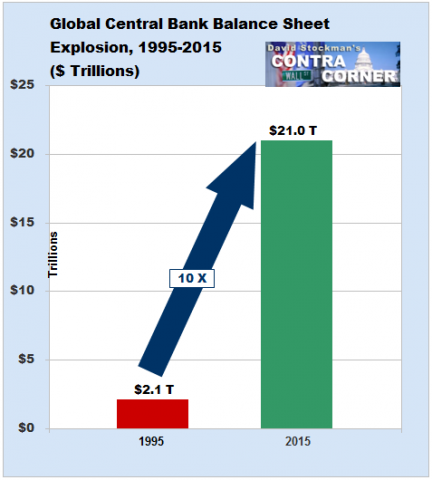The robo-machines are now having a grand old time hazing the August lows at 1870 on the S&P, and may succeed in ginning up another dead-cat bounce or two. But this market is going down for the count owing to a perfect storm.
To wit, the global and US economies are heading into an extended deflationary recession; S&P earnings peaked at $106 per share more than a year ago and are already at $90, heading much lower; and the central banks of the world are out of dry powder after a 20-year binge of balance sheet expansion.

The latter is surely the most important of the three. It means there will be no printing press driven reflation of the financial markets this time around. And without more monetary juice it’s just a matter of time before a whole generation of punters and front-runners abandon the casino and head for the hills.
Even with today’s ragged bounce, the broad market has now gone sideways for nearly 700 days. The BTFD meme is loosing its mojo because it only worked so long as the Fed-following herd could point to more printing press cash flowing into the market or promises of “accommodation” that were credible. But that will soon be ancient history.

Indeed, it is already evident that “escape velocity” has again escaped. Q4 GDP growth is now running at barely 0.5%, and the current quarter could actually be negative for reasons we will analyze in the days ahead.
But the real economic situation is actually worse than the apparent flatling trend of recent months. As we have long insisted, the GDP does not measure true gains in national wealth or main street living standards.
…click on the above link to read the rest of the article…



